Humanity
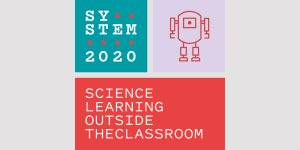
SYSTEM2020 Map
Science learning initiatives outside the classroom are crucial in educating and forming Europe’s next generation of researchers and innovators. By gaining insights into these initiatives all around Europe SySTEM 2020 wants to gain a better understanding of the types and kinds of programmes in operation, learn from each other and collaborate to be able to respond to challenges ahead. The SySTEM 2020 map is an online visualisation tool where over 2000 STEAM initiatives or projects are mapped providing a network of organisations for you to connect with. For the general public it offers a way to find informal learning initiatives in their area. For organisations it offers the opportunity to get connected and gain visibility as a collective community within Europe.
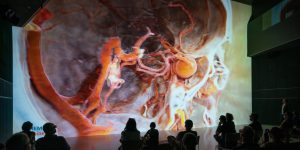
Cinematic Rendering – Dissecting Theatre of the Future
Prim. Univ.-Prof. Dr. Franz Fellner (DE), Dr. Klaus Engel (DE)
Considering how computer tomography (CT) makes it possible to peer inside the human body without resorting to a scalpel is actually quite fascinating in its own right, but the app “Cinematic Rendering” at the Deep Space 8K takes the teaching of the anatomy of the human body to the next level.
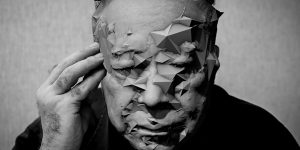
AI x Humanity
Rasha Abdul-Rahim, Adam Harvey (US/DE), Nye Thomson (UK), Milena Marin (RO), Victoria Vesna (US)
A series of panel discussions will be presented as part of the European ARTificial Intelligence Lab this year. Every evening, there will be one panel dedicated to a different topic, aiming to elucidate and educate about the impact of AI on society. The panels will bring AI related scientific, technological and artistic experts together in order to contribute to a critical and reflective debate beyond the technological and economic horizon of artificial intelligence.
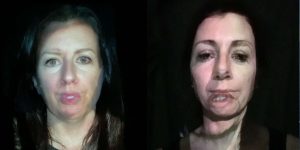
An Atlas of Absence - Online meeting performance
Summer Mei Ling Lee and Laura Boles Faw
Technology was supposed to connect us. The dominant modality for communication and connection during this pandemic era is the digital screen. In this work, collaborators Laura Boles Faw and Summer Mei Ling Lee continue their ongoing series addressing distance and longing that increasingly figures into this heightened moment.
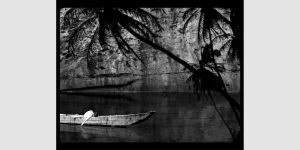
Falling Up Exhibition
re.riddle, California, San Francisco (US)
Amidst riots and racial tensions, divisive political rhetoric and a global pandemic, the past half year has been a time of turbulent uncertainty. These acute ruptures and moments of pain, conflict and unknowingness have inadvertently led to a mode of seeing our former and current realities anew, which may more or less best be described as “surreal”.
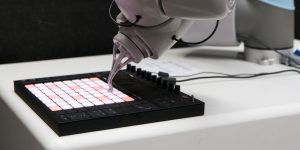
AIxMusic - Artificial Stupidity
Moisés Horta-Valenzuela (MX/US), Artemi-Maria Gioti (GR), Ali Nikrang (AT), Alex Braga (IT) and Portrait XO (US)
The panel on Artificial Stupidity invites artist present at the Ars Electronica Festival to share their experiences in the context of AIxMusic. AI is a media trend right now and a controversial topic.
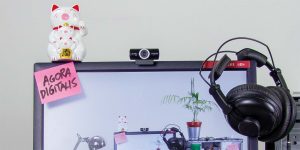
A Theory of Change
Anne Nigten (NL)
The STARTS Prize is an annual European prize for innovative projects at the interface of Science, Technology, and the ARTS. This article reflects on the most striking outcomes of a study that was conducted in the spring of 2020, to evaluate the first three STARTS Prize editions. The STARTS Prize aims to promote art as a catalyst for change and innovation in the fields of technology, science and the social sphere. It has mobilized an impressive number of artists, designers and engineers and built a strong brand in recent years.
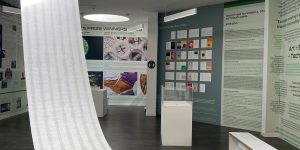
Mapping Collaborative Practice
Denise Doyle (UK), Richard Glover (UK), Martin Khechara (UK), Christian Cherene (ES), Norma Deseke (DE), Pei-Ying Lin (TW), Miranda Graaf (NL), Giulia Tomasello (IT), Tommaso Busolo (IT)
Interdisciplinary collaboration across the arts and sciences can create friction and uncertainty between creative partners from different backgrounds. How can we overcome these moments, and are they integral to any collaborative or emergent process? What role does art and science collaboration have in addressing global challenges in 2020? Chaired by Richter Glover and Martin Khechara, participants and researchers of the University of Wolverhampton’s STARTS Methodologies research project take part in this digital exchange of ideas.
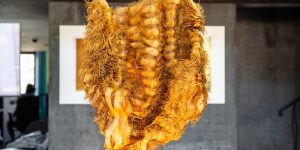
STARTS Prize Exhibition Tour
The annual STARTS Prize Exhibition presents a selection of current best practice examples at the intersection of science, technology and the arts. Kristina Maurer and Karla Spiluttini take the viewers on a journey through this year’s exhibited projects in Kepler’s Garden. From circular economy to the relationship between ecology and technology, through digital humanism and empathic approaches to artificial intelligence, the exhibition shows the outstanding diversity of artistic practice in the STARTS field.
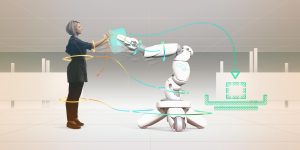
Salon Universitas
Melanie Baumgartner (AT), Florian Hartmann (AT), Christoph Guger (AT), Markus Hohenwarter (AT), Alicia Hofstätter (AT), Corinna Hörmann (AT), Martina Mara (AT), Kathrin Meyer (DE), Christopher Lindinger (AT)
This session brings together four of the exhibited teams – the LIT Robopsychology Lab, the JKU Linz School of Education, the LIT Soft Material Lab and the Institute for Integrated Circuits and their collaborative partner g.tec Medical Engineering – to discuss their creative process and prototype development.
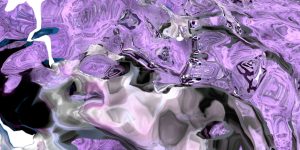
sound:frame & Pausanio virtual – Area for Virtual Art
sound:frame / Eva Fischer (AT), Marijn Bril (NL), Angie Pohl (AT)
sound:frame together with Pausanio presents the Area for Virtual Art – an online platform for digital art and virtual formats. Discover current artistic approaches in virtual exhibitions and meet people in discussion programs and live events to exchange thoughts and create new ideas and concepts. The Area for Virtual Art develops into an international hub, giving a platform to current digital art forms and connecting people all over the world.

STARTS Prize Forum: Andrea Ling
Andrea Ling (CA)
Andrea Ling, winner of this year’s Grand Prize for Artistic Exploration, introduces her winning project “Design by Decay, Decay by Design”, a series of artifacts that exhibit designed decay developed for the 2019 Ginkgo Bioworks Creative Residency on how to design a world without waste and talks about her artistic and creative process.
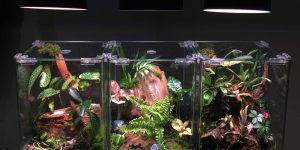
STARTS Prize Forum: Olga Kisseleva
Olga Kisseleva (RU)
Olga Kisseleva (RU), winner of this year’s Grand Prize for Innovative Collaboration, and Andrea Ling (CA), winner of the Grand Prize for Artistic Exploration, give insight into their practice.
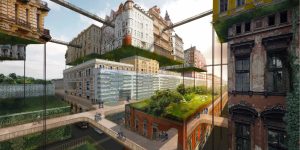
Art Thinking Forum: Humanizing Technology
Mara Balestrini (IT), Olga Kisseleva (RU), Alexander Mankowsky (DE), Hideaki Ogawa (JP/AT)
Art Thinking is a platform for discussing the role of art in the future, in the context of industry, society, and ecology. The forum is supported by the innovative communication design company Hakuhodo. In tandem with Ars Electronica's interest in emerging technologies and their effect on society, their forward-thinking creative approach strongly complements the topic of the panel: future arts, and how cutting-edge and creative artistic examples can be used to humanize technology and improve society.
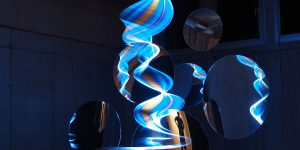
Art Thinking as Catalyst
Jurij Krpan (SI), Alejandro Martín (ES), Camille Baker (UK), Veronika Liebl (AT)
The Science+Technology+Arts = STARTS Initiative is a program of the European Commission to encourage synergies between the arts and technology that support the innovation industry and society. STARTS promotes the inclusion of artists in research and innovation activities thoughout Europe.
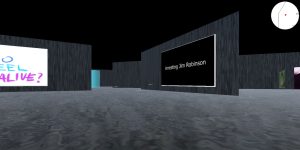
Virtual students’ exhibition “Hopes & Slopes”
VDA PhAMA (Department of Photography and Media Art at Vilnius Academy of Arts)
Made during the most intensive quarantine period works by artists from the youngest generation rethink isolation, solitude, remoteness, trauma and translate them into visual and aural vibes. All these artists are studying Animation or Photography and Media Art (PhAMA) at Vilnius Academy of Arts. - An exhibition by a group of young artists titled Hopes & Slopes is a place for a safe walk among what has fallen out a few months back.
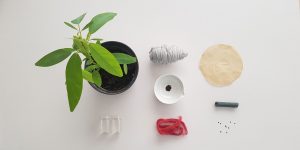
Rethinking alive as material
Rūta Spelskytė (LT)
The toolkit is designed to rethink alive as material. To think of the ways we can use nature, create tools out of it, imagine or train plant and animal features, construct their development in the future, and on the other hand – how to take a moment to stop and just appreciate it.
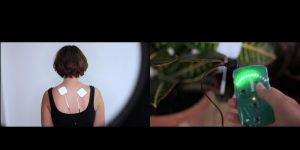
The Birth of Venus
Brigita Kasperaitė (DE/LT)
While in the past electroconvulsive therapy was used in very questionable ways, we can admit one thing, the reality is questionable in itself. And while the artist Brigita Kasperaitė explores the natural and synthetic ways of electrical discharges and how they might affect the surroundings, she is also interested in knowing and experiencing that electricity is everywhere - as well as our bodies.
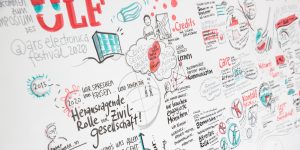
The Civil Society of the Future
Unabhängiges LandesFreiwilligen Zentrum (AT)
When, if not now, should we talk about the future of civil society? As with the refugee conflict in 2015, the corona crisis of 2020 highlighted the role of civil social engagement. Once again, it became clear how much the initiatives, associations, NGOs, NPOs and individuals we consider as “civil society” can do.
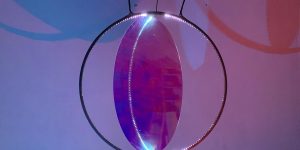
Dialogue#4 – shifting perspectives
HKU University Of The Arts Utrecht (NL)
In Dialogue#4 we talk about shifting perspectives. With several artists involved in the exhibition we discuss the aspect of “reality” and in what way art should contribute to a broader perspective on reality. Things we take for granted are maybe not what they seem, or at least there is another way of looking at them. When looking at it this way then there is no fake news as it is just another perception of reality. In a world fixed on maintaining certainty, and thus one perspective as the truth, how can artists fight against this narrow minded view on reality?


